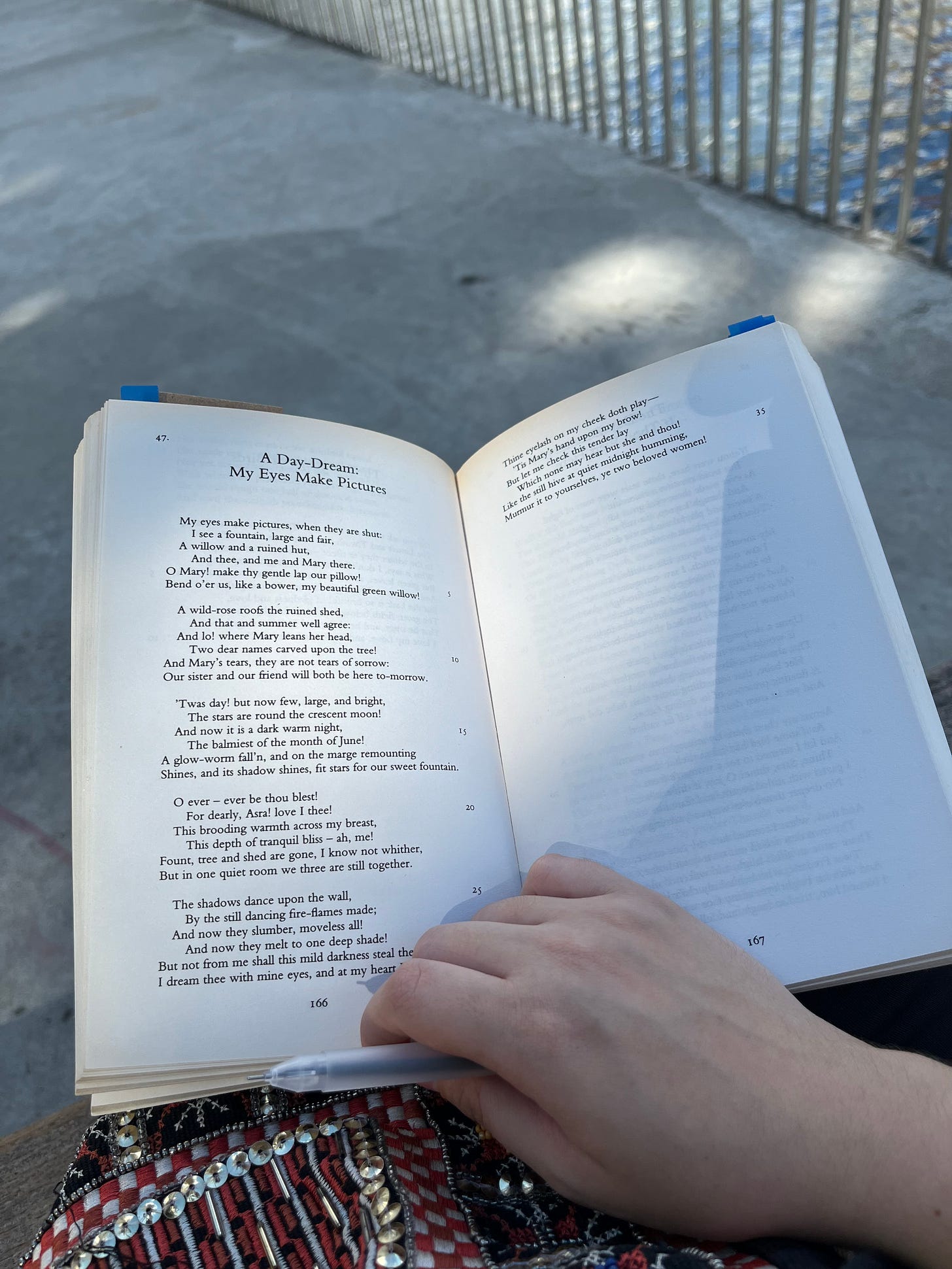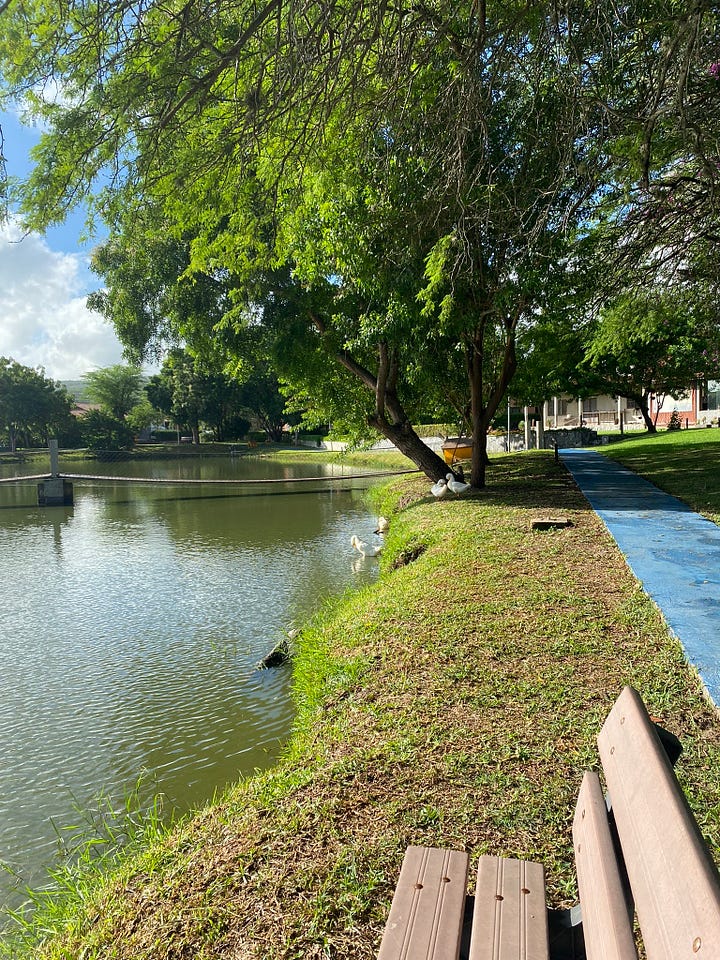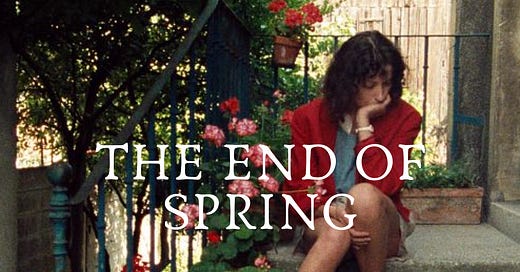‘It is unimaginably hard to do this, to stay conscious and alive in the adult world day in and day out.’
This is part of the conclusion of David Foster Wallace’s famous speech/essay This is Water. In it, he says something I am not yet comfortable accepting, but I must if I intend to go through another 25 years. Life will not always be fun, stimulating, beautiful, or poetic, though it can always be meaningful. But as he said, this is ‘unimaginably hard to do’ and one can and must do it by consciously exercising awareness about how we see and interpret our surroundings.
It’s so easy to give in to the despair of mundanity. When I stop to consider the amount of tedious little things we have to do every single day over and over again – it’s like staring into the void. What could help? Nothing but taking control of myself, and in my case, with a little assistance from literature. Reading more complex texts that require time, for example, is a way of slowing down and exercising my attention, but it's not always possible (or practical) to be engaged in intellectual challenges. And so recently I discovered that poetry, especially when it paints a picture of nature, can quiet my mind and make space for the necessary awareness.

A mild but incredibly annoying challenge, especially in writing, is to be earnest without being corny. I could never be a poet as I’m too embarrassed, and that’s why I’m immensely grateful to all the artists who can translate the feelings I am afraid to express myself. It seems that the older I get, the more sentimental I become. Either that, or I am finally removing the veil of cynicism that stopped me for so many years to appreciate prosaic beauties without shame. I wouldn’t even pick a flower on the pavement because I didn’t want people to look at me.
Literature partially gave me the freedom to feel connected to nature (spiritually? aesthetically? maybe both?), as well as instruments to think and talk about it without feeling silly. Authors such as Leo Tolstoy, Thomas Hardy, Emily Bronte, Samuel Coleridge and Walt Whitman allowed me to get in touch with emotions that, due to over-intellectualisation or a pathetic desire to be stoically cool, I was unable to reach.
Twenty-five years seems so old, but at the same time, I feel as if I haven’t started to live yet. Then what is all this? Attempting a perspective exercise, I tried to imagine life as one great year composed of the four seasons. Assuming that at the peak of longevity, a human life is one hundred years, divided by four, the result is twenty-five years for each season. It makes so much sense that I can't be the first person to think of it – I might have read it somewhere and forgotten, and now I'm here appropriating the concept. Anyway, problems of authorship aside, this is my last year of spring, and from now until I'm fifty, I'll be living the summer.


I don’t know what the ‘summer of one’s life’ means. I have heard people talk about ‘the September of my years’ or ‘the winter of our discontent’, and especially in poetry the ‘vernal grace’ of one’s beloved – not a word on summer. Our culture is excessively focused on ‘the early twenties’, but I believe the next summerly quarter of a century will be the most important of my stupidly short human life.
Isn’t it unfair that most of one’s spring is spent ‘unconscious’ since the self is still under construction during childhood? As soon as we become aware of our fresh vitality, it’s already gone. Maybe such awareness is the loss of innocence – the spring awakening – and we become aware of outward life instead of just ourselves. I fear I may regret writing this one day, as I am emotionally overwhelmed and thus prone to exaggerations. I should go celebrate my birthday now, even if part of me still grieves the change.
Ironically, we spend so many years learning how to live that by the time we do (if we learn at all), it is winter already. Yet, at the very end of spring, I discovered a few things that are certainly not enough to get me through the seasons, but it will do.
This song really encapsulates all of it. Where would I be without you Joni?






que texto lindo!
Parabéns, Ju ♥
não tenho palavras para descrever como esse texto foi importante para mim. Em uma coincidência mágico, faço aniversário hoje também Julia, então essa edição foi um dos meus melhores presentes da vida!
parabéns para você também! obrigada por tantos textos maravilhosos que transformam meu dia em algo maravilhoso! <3